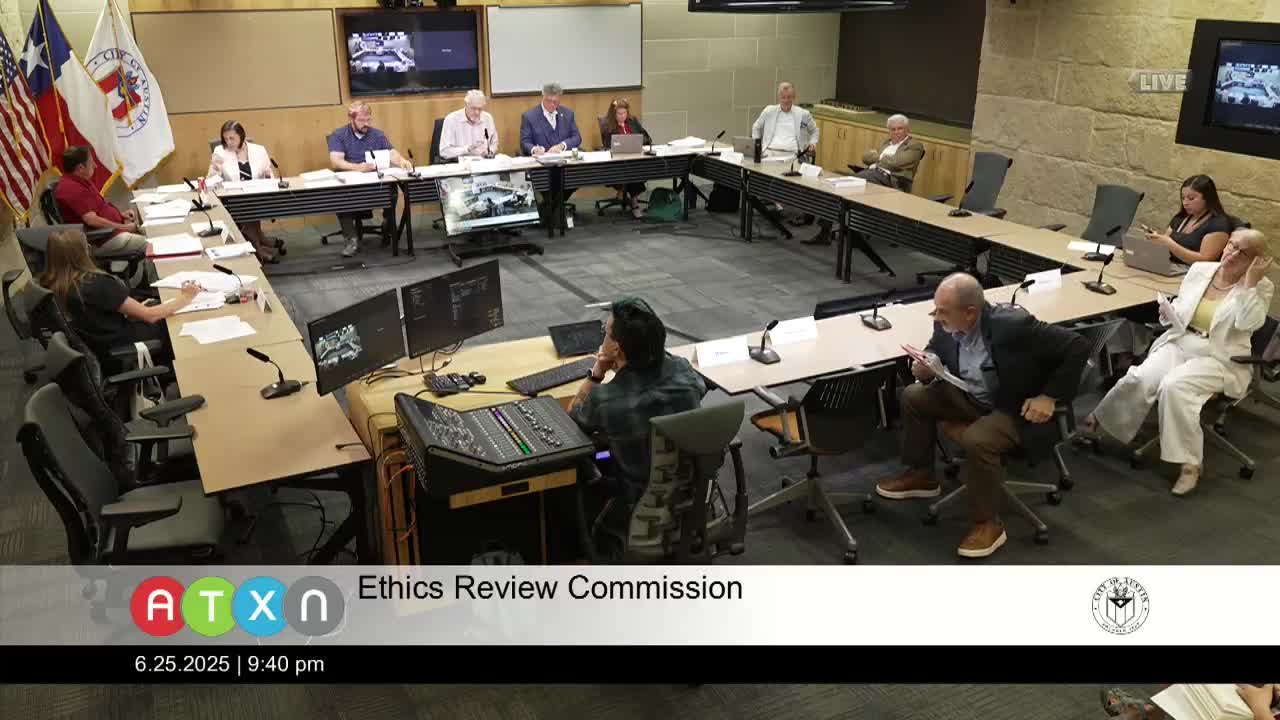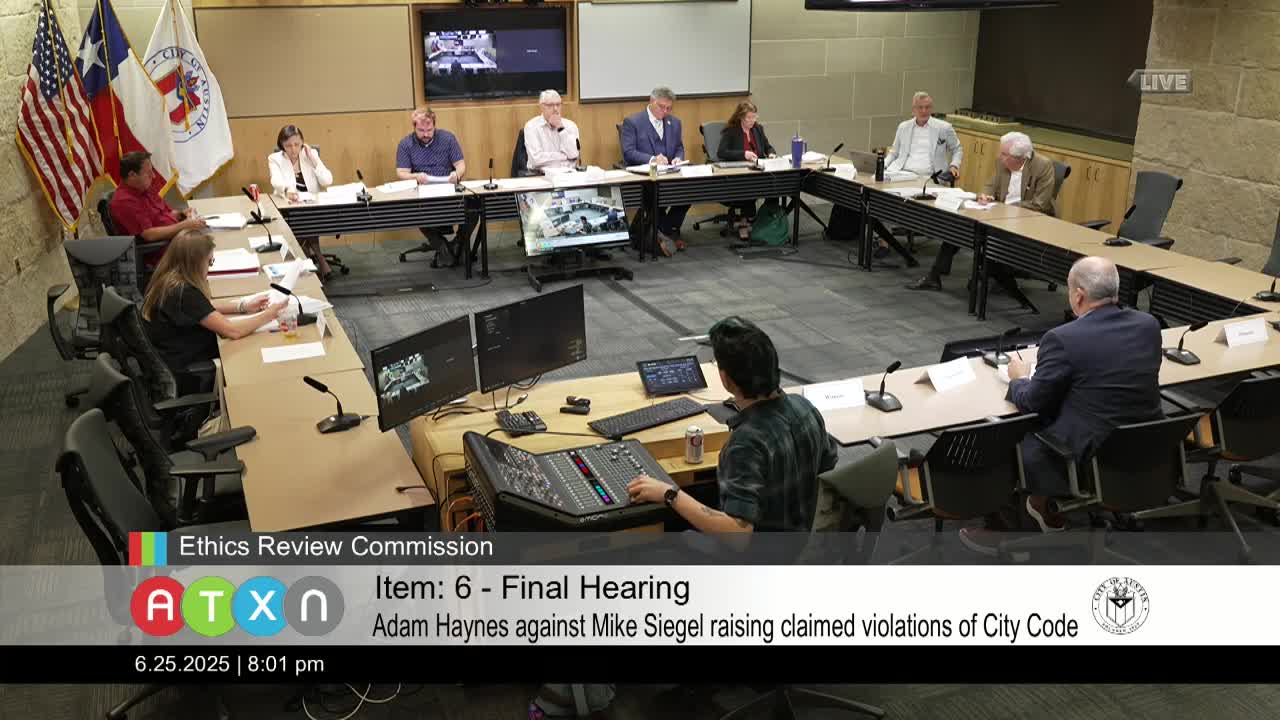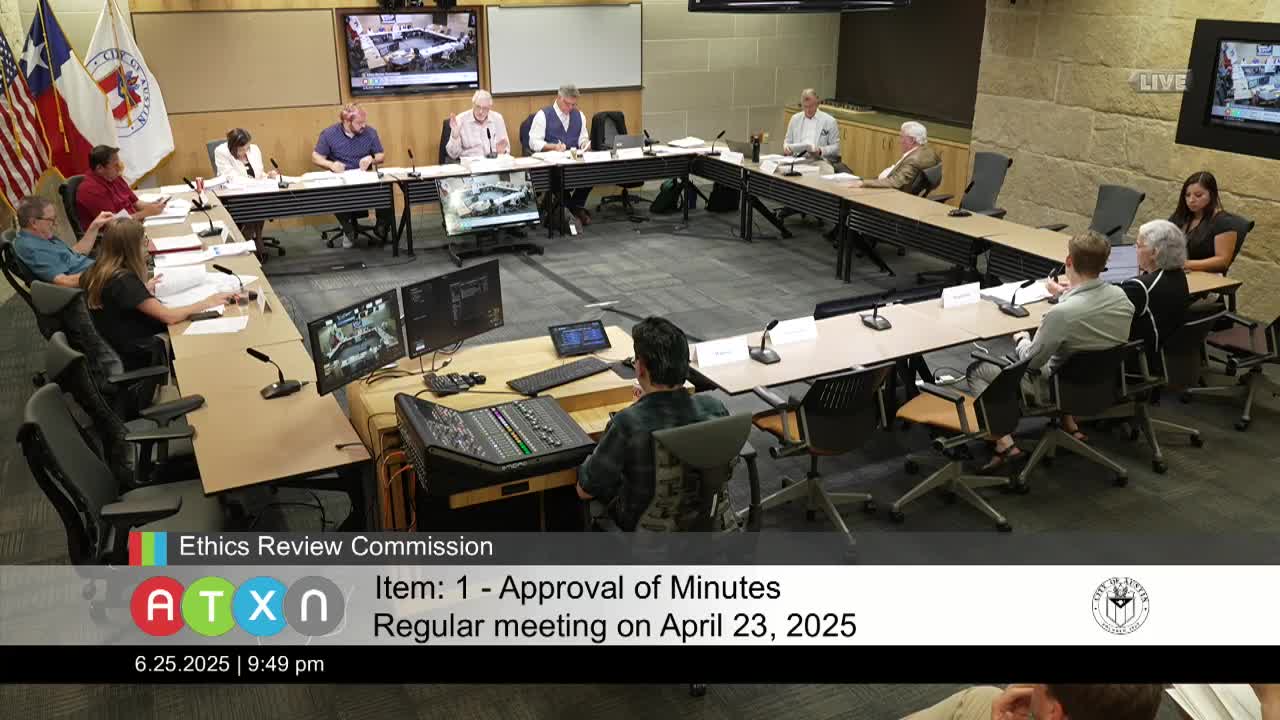Article not found
This article is no longer available. But don't worry—we've gathered other articles that discuss the same topic.

Commission declines to find violation in complaint alleging ORA/Aura coordinated unreported campaign activity

Austin ethics commission declines to find violation in Mike Siegel campaign finance complaint

